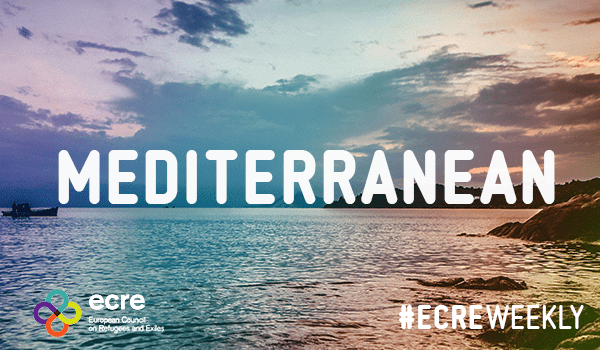Sicilian prosecutors are under scrutiny by the Italian justice minister after wiretapping journalists and allegedly exposing their sources in the attempt to link civil search and rescue operators to human smuggling. Following delayed response to distress calls by Malta and Italy a group of 110 people in distress believed to be abandoned at sea has finally disembarked in Italy. 93 detainees in Maltese migration detention facilities were treated for self-harm or suicide attempts in 2020, significantly more than in previous years.
The Italian justice minister, Marta Cartabia, is dispatching inspectors to Sicily to investigate reports that local prosecutors have used wiretapping of journalists to ‘expose’ alleged links to human smuggling in the ongoing crack-down on the civil search and rescue fleet. At least seven reporters covering the Med and Libya were secretly wiretapped while talking to their sources by prosecutors mapping out information protected under the criminal code as professional secrecy including names, contacts, personal data and relations in violation of their journalistic rights. According to Italian media the most striking case concerns Nancy Porsia, an expert journalist on Libya, intercepted for a long time, even during phone calls with her lawyer Alessandra Ballerini Domani. Investigative reporter Andrea Palladino stated: “Among the reporters whose conversations have been wiretapped, are journalists who have risked their lives to expose the tragedy in the central Mediterranean, or the torture of migrants,” continuing: “This is a move that seriously jeopardises the freedom of information.” Based on the investigation more than 20 people involved in the rescue of thousands of lives in the Med were charged in early March with collaborating with human smugglers and are facing sentences of up to 20-years imprisonment. At the centre of the investigation are the vessels Iuventa, operated by the German NGO Jugend Rettet, Vos Hestia, operated by Save the Children, and Vos Prudence, operated by Médecins Sans Frontières (MSF).
Meanwhile, the Central Mediterranean route remains busy and dangerous. The recently released Airborne Monthly Factsheet from Sea-Watch covering February 2021 counts 29 boats with over 2,300 people in distress over just that month. On 3 April 160 people aboard two boats were rescued and taken to Lampedusa after three days at sea. Another boat in distress carrying 110 people was reported to be in distress southwest of Malta on the same day but remained unaccounted for until 6 April when it was finally confirmed that the group had disembarked in Italy. ECRE member, aditus foundation released a statement thanking Italian authorities for allowing disembarkation and while acknowledging the late confirmation of the traveller’s fate by Armed Forces of Malta, also urging full and timely transparency: “It is in the interests of safety of lives, transparency and accountability that we stressed – and continue to stress – the need for the competent authorities to refrain from withholding information relating to search and rescue activities”.
According to statistics from the Health Ministry, 93 people detained in Malta received treatment for self-harm or suicide attempts in 2020 amounting to four per cent of all arrivals by sea. This marks an increase from two per cent of sea arrivals, or 60 people, in 2019, and one per cent, or 17 people in 2018. The appalling conditions in Maltese detention centres were recently confirmed in a ruling by the European Court of Human Rights (ECHR) as well as a report by the Council of Europe’s anti-torture Committee (CPT) with the Malta Refugee Council demanding an overhaul of the detention system. Commenting on the statistics to Maltese media, aditus foundation director Neil Falzon stated that in light of the gruesome conditions, he was not surprised that the pressures caused by the pandemic had spurred a rise in mental health problems among detainees.
On 6 March Italian Prime Minister Mario Draghi began a state visit to Libya seeking to increase investment and cooperation with the war-torn country. Draghi expressed satisfaction with Libya’s role in managing migration across the Mediterranean, an effort based on substantial financial support and training by EU and Italy. According to the International Organization for Migration (IOM), by the end of March, 232 people had died or gone missing in the Mediterranean in 2021 and 4,405 people had been returned to Libya where they are facing widespread abuse and violence.
For further information:
- ECRE, Search and Rescue: IRINI Mandate Extended, First Meeting of European Search and Rescue Contact Group, Spain Expanding Migration Cooperation in Africa as Distress, Death, and Returns at Sea Continue, April 2021
- ECRE, Med: Prosecutor Calls for Trial of Salvini as Italian Crack-Down on Civil Search and Rescue Operators Continues Amid Tragedy and Rescues, March 2021
- ECRE, Atlantic Route: Distress Cases, Deaths, and Transfers to Camps, March 2021
Photo: ECRE
This article appeared in the ECRE Weekly Bulletin. You can subscribe to the Weekly Bulletin here.

